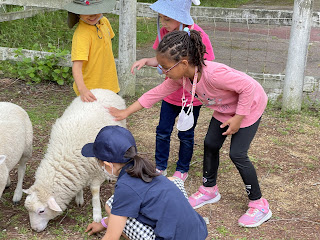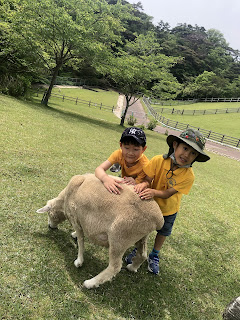"Field Trips are the ultimate test of student agency, because-if focused correctly-they provide opportunities for students to show themselves as agents in the real world. When taken out of the academic environment, young people can surprise us by showing they can be agents for themselves, agents for their friends and agents for action in the wider world."
IB PYP, Edyta Approaches to Teaching, Learner Profile
What a beautiful day spent out in the sun,
where preschoolers enjoyed and had so much fun!
Preschoolers went out on a trip to Rokkosan Pasture where they had the opportunity to interact with nature and animals as part of our unit.
As part of the IB curriculum, taking out students on field trips enhances the learning we do in the classroom while the students experience in the outside world.
This opens up their minds to real world situations and they are able to understand and develop empathy.
In connection to our unit, the preschoolers saw the habitat of different animals such as:
the guinea pig..
the ducks...
the cows..
It made them realize how we, humans affect the lives of these animals.
Also, this experience helps create a well-rounded students who are caring and knowledgeable.
With the freedom to do whatever they can do with these animals roaming around, the preschoolers chose to be gentle and caring.
They gently pet the sheep, rabbit and horses.
Excitedly, they fed the baby cow with milk,
The goat with pellets and grass.
Hopping rabbits with carrots.
Furthermore, this wonderful experience also lets them access the tools in the environment which are equally important as the theories or concepts learned in the classroom.
Lastly, with the teacher and parents' guidance, extended learning through trips leave stronger academic impact to these young learners.
.. such as understanding that the ice cream they are now enjoying came from the cow they fed a while ago!
... and leaves wonderful memories that they will always remember!




















Comments
Post a Comment